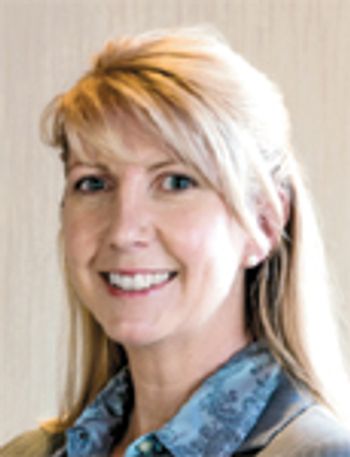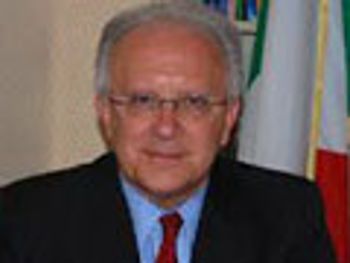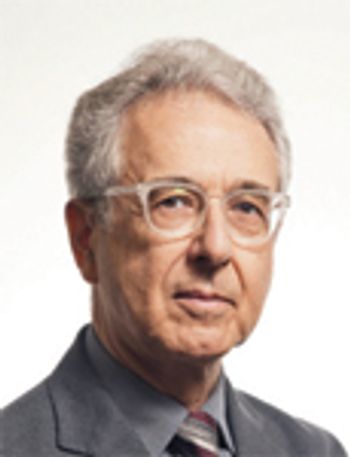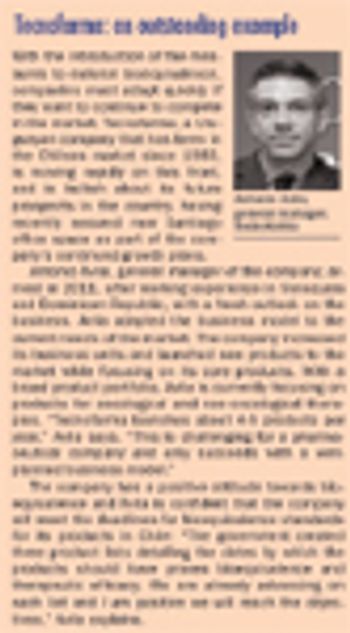
Leela Barham looks at some of the questions that still need to be asked of England's controversial Cancer Drug Fund.

Leela Barham looks at some of the questions that still need to be asked of England's controversial Cancer Drug Fund.

Pharm Exec’s annual report highlights the key scientific, commercial, and reputational trends shaping the industry in the year ahead.

The Canadian R&D industry, which boasts a rich history of drug innovation, celebrates a series of anniversaries.

The European Union's extensive links with the US FDA and Health Canada have reached a further level of maturity, writes Peter O' Donnell.

Jill E. Sackman and Michael Kuchenreuther look at some of the pricing and reimbursement challenges in the UK and offer strategies manufacturers should consider for sustainable success.

With spending on healthcare increasing in Malaysia, access to innovative drugs remains a challenge as the country juggles its dual public-private health system.

If you’re like us at PharmExec, you’ve been reading the news of potentially thawing US/Cuban relations, and you’re wondering, how long before the flag of Cuba graces the Hall of nations at BIO International Convention?

Under the voluntary 2014 Pharmaceutical Price Regulation Scheme in the UK, member companies have to pay back if NHS spending on branded medicines goes over pre-agreed growth rates. With no growth allowed for 2014 and 2015, it was always going to be a matter of when and how much - not if - payments would be made.

Michael Scholl, Karl-Hubertus Gruber and Michael Marquardt look to the future of the immunodiagnostics market and see more consolidation ahead.

Once considered a healthcare backwater, Algeria's expanding pharmaceuticals market is taking the African continent by storm.

Despite recent changes in corporate tax law, Ireland remains an attractive partner in the development and manufacture of biopharmaceuticals, writes Rory Mullen of IDA Ireland.

The European Union is moving ahead, in its own slightly crabwise fashion, with its attempts to work out what healthcare budgets should be used for. Reflector reports.

Agency's plan for reporting clinical trial data has sparked strong reactions from health campaigners, industry, and patients.

The Brazilian economy is being impacted by internal and external factors, and forecast figures are being quickly revised downwards. Hellen Berger reports.

The EMA might have expected that the publication of its plan for proactive release of clinical reports would receive a warm welcome. But, Reflector writes, it is far from a roaring success.

In this special issue of Pharm Exec Global Digest: Unlocking the true value of Big Data; Data privacy and the health sciences; In-silico modeling and real-word outcomes; and more...

Fabio Pammolli, selected by the European Commission to author a set of critical overviews on the pharma sector, talks about the need for a dramatic change in industrial strategy.

Pharm Exec talks with Dr. Sergio Pecorelli, Chairman of the Italian Medicines Agency (AIFA), an organization respected in global regulatory circles for its precedent-setting work on advanced cost-effectiveness metrics.

NICE's David Haslam discusses the UK drug watchdog's new challenge in meeting expectations around what quantitative calculations of value mean to patient access today.

Although progress has been made in bringing biosimilars to market, gaps in requirements for testing and documenting product similarity are still hampering the EU, U.S., and other regions, writes Jill Wechsler.

The EU may have a new monitoring scheme for Iceland's volatile geology, but it should also heed the volcano that could blow apart its assumptions on drug pricing and reimbursement, says Reflector.

Is sub-Saharan Africa a jewel box of untapped assets for a growth-obsessed big Pharma? Pharm Exec speaks with Steven Adjei, partner of an investment firm focused on opportunities in the region.

Spain's recession-battered pharma sector adapts to a changing market environment and repositions itself for a return to healthy growth through expanding opportunities abroad.

Leaders from industry, government, and the CRO community examine Ireland's future as a magnet for life science investments, and what the nation must do to remain the leading exporter of finished pharmaceutical products.

2014 kicks off a defining period for healthcare in Chile as a new national drug law is implemented, with the hopes of creating a system that makes access to medicines easier and more transparent for patients.